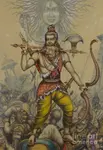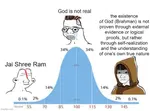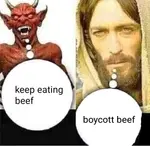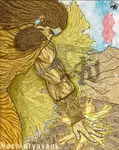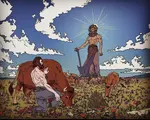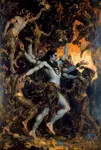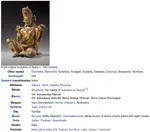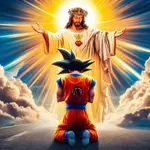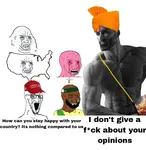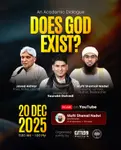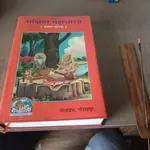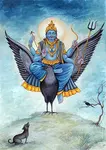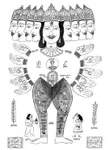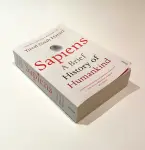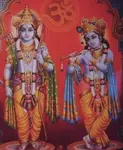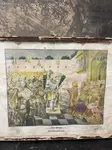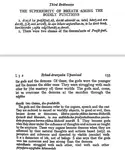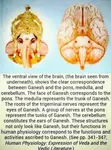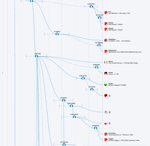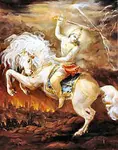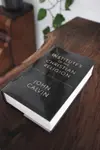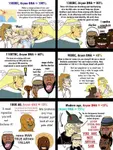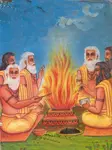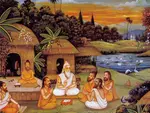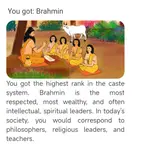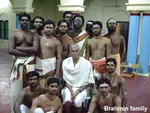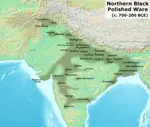Recent Posts
do you have faith in Bhagvad Gita ?
Which sect are you most attracted to ?
Is Indra considered the Supreme God In vedic hindu...
Opinions on Picrel
How do I worship Dyaus Pitr?
Opinions ?
Some artwork I made using AI
Opinions on Rasa Panchadhyayi ?
indranons zara idhar aana
Who is your isht Devi/devta?
Caste is a Western Construct ....
Does God Exist?
Hindus are doomed
Varnashrama
What is that "One Book(s)" that everyone should re...
Post Indian normiecore
christianity
watch this jain baba bragging about jains exploiti...
Why do Chintus celebrate Brahmahatya ?
To all my Musleem Bhachanners
As a Dalit I envy the feeling of religiosity among...
Ashwamedha Yagya
some betichods who sold the religion for cheap rew...
If a muslimahh ties you rakhi should one assume sh...
help with mujeet spreading propaganda
Discourse on the Upaniṣads
B-bros
Yaar Pajeet
coping seething dilating
was Vritra really a serpent ? In my opinion it was...
systematized Theology anyone ?
Decline of the vedic faith

/JFL04
No.801
What caused this?

/JFL04
No.806
why vidrel was removed?

jJMPv3
No.807

jJMPv3
No.808
>>807
[1/5]
The original Hinduism is a sacrificial religion whose goal is to reach immortality by sacrifices to the god Prajapati and Agni and Indra. There's no Brahma no Vishnu and Krishna. The entire universe relies on sacrifices by the brahmins (and only the brahmins) to get going. The brahmins performing correctly the sacrifice is called karma. That's what karma means in Hinduism. The legend says the Rishis on earth managed to get this knowledge and they passed it along to create the brahmin (indian). Only the brahmins know the way to immortality and can be holy people. People outside the (indian) can't have a connection to the brahminical gods.
So the most important daily duty of a brahmin is to do good karma, ie to sacrifice fire all the time. And where does he do it? in the middle of his house. The duty of the brahmin is to be a householder for A. sacrifice B. getting married C. having a son. Hinduism is the chud's fantasy turned into a religion lol : the brahmins say they reach immortality by being a householder who nuts into some woman and gets a son out of it. This is taught in all the oldest Hindu texts.
>"A man who has no wife is not entitled to sacrifice." Taittiriya Brahmana
>"Therefore, having found a wife a man considers himself to be, as if, more complete." Aitareya Aranyaka (1.2.5)
>What is the use of dirt and deer skin?
>What profit in beard and austerity?
>Seek a son, O Brahmin,
>He is the world free of blame.
Aitareya Brahmana
This is the ''rebirth'' theory of the brahmin in the original Hinduism:
>"The husband, after conception by his wife, becomes an embryo and is born again of her; for that is the wifehood (jayatva) of a wife (jaya), that he is born (jayate) again by her." law book of Manu (9.13)
>Rg Vedic (5.4.10) prayer: "Through off-spring, O Agni, may we attain immortality."
>"In your offspring you are born again; that, O mortal, is your immortality" (Taittiriya Brahmana, 1.5.5.6).

jJMPv3
No.809
>>808
[2/5]
Then they go one more step further in the oldest Upanisad : they equate the sexual parts of a woman with elements of the sacrifice and equate sexual intercourse to a Soma sacrifice:
>Her vulva is a sacrificial altar; her pubic hairs, the sacrificial grass; her skin, the Soma-press; and her labia, the fire in the middle. As great indeed as the world gained by one who performs a Soma sacrifice, is the world gained by one who, with this knowledge, engages in sexual intercourse.
Brhaddmnyaka Upanisad (6.4.3)
The familial-social duties peaked with procreation. This means also that the human individual is not given any conceptual reality in the hindu society.
Now that was before the urbanization, the creation of big cities and kingdoms, and the jains and buddhists and all the random ascetics who called BS on the brahmins. No wonder the brahmins were not happy to hear the Chud religion is outdated and comical. The ascetics were all about renunciation and meditation, instead of being a householder and fornicating and waving hands in the air during farcical fire rituals.
Then all of a sudden in the oldest Upanisads the weirdest thing happens: it's now the philosopher-kings who teach the brahmins about transmigration. It turns out brahmins didn't really know nor care about that. And the Kings begin to teach them various theories about samsara, karma, rebirth, and liberation. So for intsance, the vedic karma of the sacrifice by all brahmins becomes in fact a source of suffering in buddhism and jainism: karma is evil. That's completely backwards from what the Brahmins preached in the Vedic period. Karma was positive and a guarantee of immortality and now karma is evil and keeps you going on the samsaric cycle of births full of suffering. Getting out of this mess is not done by procreation and providing for a stay at home mom and her kids leeching off, but to individually create in fact to stop creating karma.

jJMPv3
No.810
>>809
[3/5]
And the brahmins themselves start shitting on their own dogmas that their own rituals and sons are a connection to some better life:
>22.That great, birthless Self which is identified with the intellect and is in the midst of the organs, lies in the ether that is within the heart. It is the controller of all, the lord of all, the ruler of all. It does not become better through good work nor worse through bad work[=karma=rituals]. It is the lord of all, It is the ruler of all beings, It is the protector of all beings. It is the bank that serves as the boundary to keep the different worlds apart. The Brāhmaṇas seek to knowIt through the study of the Vedas, sacrifices, charity, and austerity consisting in a dispassionate enjoyment of sense-objects. Knowing It alone one becomes a sage. Desiring this world (the Self) alone monks renounce their homes. This is (the reason for it): The ancient sages, it is said, did not desire children (thinking), ‘What shall we achieve through children, we who have attained this Self, this world (result).’ They, it is said, renounced their desire for sons, for wealth and for the worlds, and lived a mendicant life. That which is the desire for sons is the desire for wealth, and that which is the desire for wealth is the desire for the worlds, for both these are but desires. This self is That which has been described as ‘Not this, not this.’ It is imperceptible, for It is never perceived; undecaying, for It never decays; unattached, for It is never attached; unfettered—It never feels pain, and never suffers injury. (It is but proper) that the sage is never overtaken by these two thoughts, ‘I did an evil act for this,’ and ‘I did a good act for this.’ He conquers both of them. Things done or not done do not trouble him.
Brihadaranyaka Upanishad 4.4.22

jJMPv3
No.811
>>810
[4/5]
And by the late upanishads,
>The first seven mantras of second khanda of first Mundakam explain how man has been called upon, promised benefits for, scared unto and misled into performing sacrifices, oblations and pious works.[24] In verses 1.2.7 through 1.2.10, the Upanishad asserts this is foolish and frail, by those who encourage it and those who follow it, because it makes no difference to man's current life and after-life, it is like blind men leading the blind, it is a mark of conceit and vain knowledge, ignorant inertia like that of children, a futile useless practice.[24][25]
>But frail, in truth, are those boats, the sacrifices, the eighteen, in which these ceremonies have been told,
>Fools who praise this as the highest good, are subject again and again to old age and death.
>Fools dwelling in darkness, wise in their own conceit, and puffed up with vain knowledge,
>go round and round, staggering to and from, like blind men led by the blind.
>—Mundaka Upanishad, 1.2.7 - 1.2.8[24][25]
In fact they even reject the 4 Vedas as meaninful for liberation
>Angiras answered, states verse 1.1.4 of the Mundaka Upanishad, by classifying all knowledge into two: "lower knowledge" (apara vidya) and "higher knowledge" (para vidya).[15] Hume calls these two forms of knowledge as "traditions of religion" and "knowledge of the eternal" respectively.[17] The lower knowledge includes knowledge of four Vedas, phonetics, grammar, etymology, meter, astrology, and the knowledge of sacrifices and rituals.[19] Some manuscripts of Manduka Upanishad expand the list of lower knowledge to include logic, history, Puranas and Dharma.[20] The higher knowledge is the means by which one can comprehend the imperishable (Aksara, Brahman). It is the knowledge of Brahman - the one which cannot be seen, seized, has no origin, varna,[21] eyes, ears, hands, or feet; it is the eternal, all-pervading, infinitesimal, imperishable, indestructible.[22][17]

jJMPv3
No.812
>>811
[5/5]
All of this knowledge is bundled into the oldest chandogya Upanishad as the knowledge of ''the five fires'', which guarantees the brahmins to reach immortality
>1-2. Those who know this [about the five fires], and those who live in the forest practising austerities with faith—they go after death to the world of light. From the world of light they go to the world of day; from the world of day to the world of the bright fortnight; from the world of the bright fortnight to the six months when the sun moves northward; from there they go to the year; from the year to the sun; from the sun to the moon; and from the moon to lightning. There someone, not human, receives them and leads them to brahmaloka. This is the path of the gods.
https://en.wikipedia.org/wiki/Panchagni_Vidya
>See Pms 6.1.33. Gautama (12.4) states that if a shrudra listens to the Veda molten lead should be poured in his ears, if he utters the Veda his tongue should be cut off, and if he remembers the Veda his body should be hacked. One is not allowed to study the Veda in the presence of a shrudra: GDh 16.18—19: ÅpDh 1.9.9; VaDh 18.3; YDh 1.148.

jJMPv3
No.813
moral of the story-
- GENETICS HAS THE ULTIMATE BEARING ON OUR INTELLECTUAL RESPONSES TO THE CHALLENGES WE FACE IN THE WORLD
- NEVER LOSE GENETICS

FLYhNv
No.814
>>813
for the fatheads who still don't get it,
with loss of aryan blood over subsequent generations the hindus have drifted away from the original vedic faith to a cultural shitflinging abbo shitfest.

xgie4E
No.815
>>813
So you're saying that the loss of the aforementioned "aryan" blood cause the descendants of vedic brahmins to appropriate other faiths into vedic hinduism?

Kn9Tnn
No.816

Kn9Tnn
No.817
>>807
Wait till you realise the Vedic ppl were already mixed before they came to India. Cumcells love to steal history

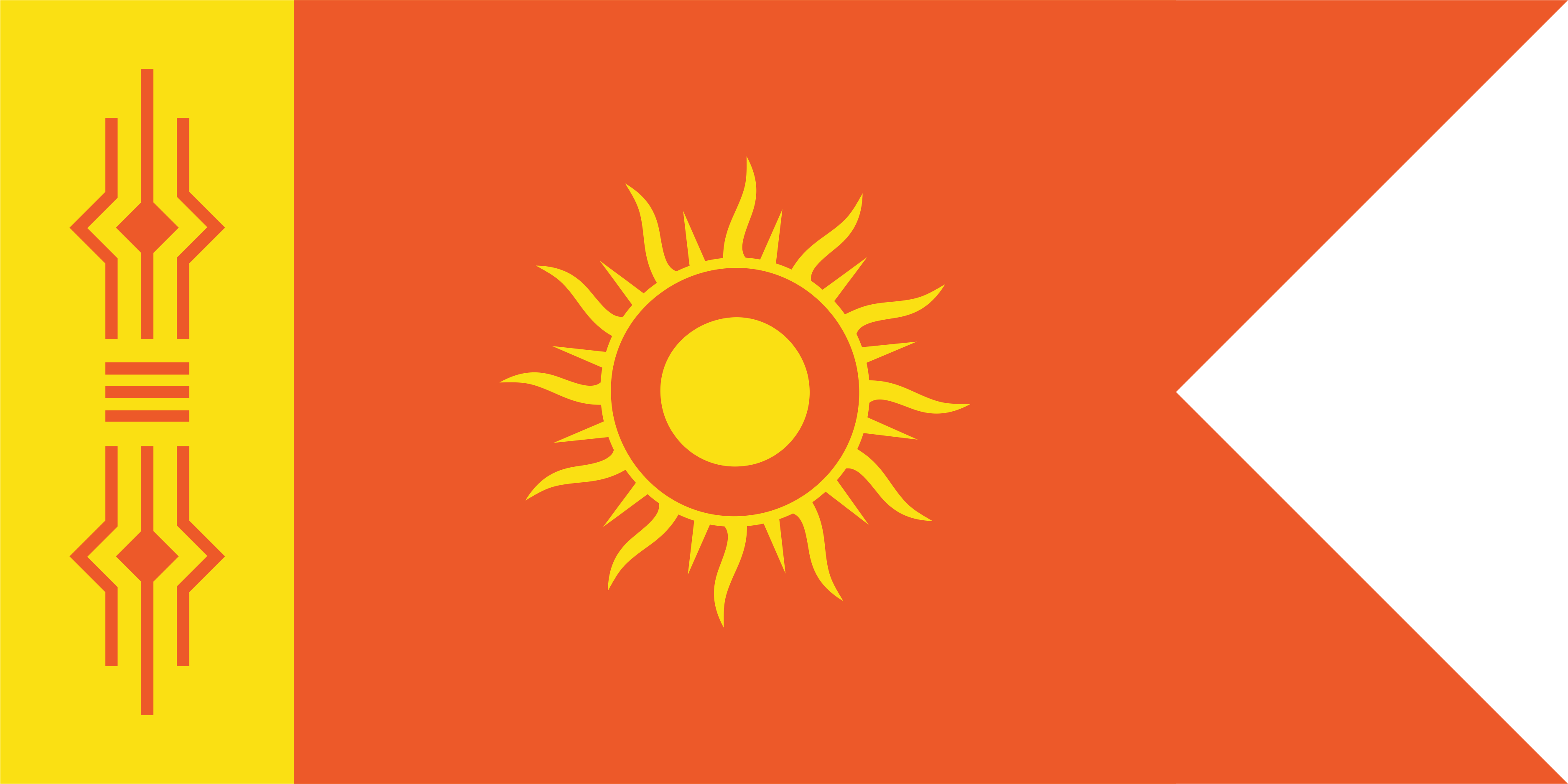
p4hxYv
No.818
>>814
why did you shit up this entire thread with your quasi scientific goyslop, faggot?

2/xfES
No.820
>>817
They were mixed with CHG people, well tbh you aren't wrong but CHG component isn't as frowned upon as SAHG. That aside, religions have to adapt or perish, even Christianity, that is considered one of the best religions in last few centuries, was reformed a lot by the popes.

JKIrlP
No.831
>>820
Not just chg. Also mixed with Iran neolithic and aasis in Afghanistan. Even the god indra is from BMAC

vRCrt0
No.832
>>831
Iran Neolithic is derived from CHG, Majority of SAHG component was only added into the mixture once the aryans settled in India.

bJ80RC
No.833
>>832
Not true , ivc was also aasi filled. So did early Aryans in Gandhara

69a9J+
No.834
>>833
IVC too had segregation, the peasants were AASI enriched and the elites were CHG/Zagros enriched.
>so did early aryans in Gandhara
only after mixing with ivc people.

iFVpbC
No.869
first we need to get rid of this abbo dark skinned god Krishna who marries his cousins and also his entire abbo lore of Mahabharata where 5 brothers take their turns on a single woman

w5Ws69
No.985
>>808
>The husband, after conception by his wife, becomes an embryo and is born again of her
trvke. The lineage is perceived as a single unit.

FXhbCV
No.986
>>801(OP)
The person who made this post is right genetics is related to decline in faith but genetics are a part of it moreover it is also related to cosmic movements which is metioned in vedas. You can take the example of the irish people they follow christianity now but vefoee they also followed vedic religion , their mother goddess is danu who was wife of rishi kashyap . But the children born from danu were called danavs as they ate meat and drank liquor so they were thrown out of indi a as were many tribes who did not follow vedas .

FXhbCV
No.987
>>834
Zagros and chg ancestors are same , also zagros is 80% chg
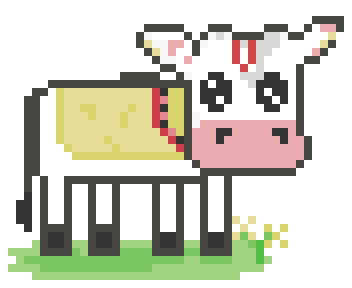

RwmF2I
No.988
>>801(OP)
>what caused it
Formally - NPBW culture.
The progression is natural and alright. Retvrn to old gods people are wrong. These people care more about perception of seen as 'morally superior' than actual material or rituals or following things.

qmKmG3
No.989


RwmF2I
No.990
>>988
The end of NBPW culture lead to the rise of mahajanpadas, the 16 great republics which eventually lead to the rise of Magadha empire which carried on for almost thousand years.

qmKmG3
No.991
>>808
>There's no Brahma no Vishnu
LMFAO  yaar typing all that when this randi putra didn't bother reading vedas
yaar typing all that when this randi putra didn't bother reading vedas 

qmKmG3
No.992
>>816
Same kek, that like alone invalidates the entire war with Vritya, when will chamars learn they suck at baiting 




